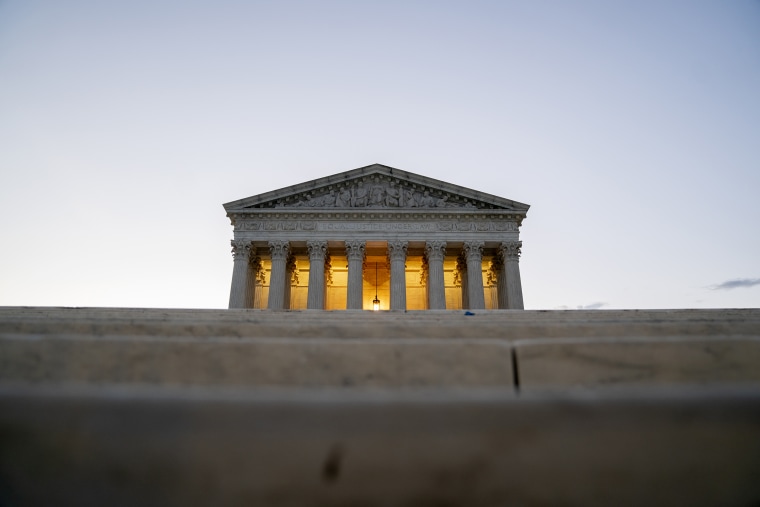It was eight years ago last month when the U.S. Supreme Court's first gutted the Voting Rights Act. This morning, the high court's conservative majority made matters worse.
The Supreme Court on Thursday upheld two election laws in the 2020 battleground state of Arizona that challengers said make it harder for minorities to vote.... Tuesday's ruling said Arizona did not violate the Voting Rights Act when it passed a law in 2016 allowing only voters, their family members or their caregivers to collect and deliver a completed ballot. The court also upheld a longstanding state policy requiring election officials to throw out ballots accidentally cast in the wrong precincts.
The ruling in Brnovich v. Democratic National Committee is online here. The ideological split was predicted long before the ruling was issued: Justices Alito, Roberts, Thomas, Gorsuch, Kavanaugh, and Barrett were in the majority, while Justices Kagan, Breyer, and Sotomayor dissented. It was Samuel Alito, arguably the court's most conservative justice, who wrote the ruling.
At the heart of the case was Section 2 of the Voting Rights Act of 1965, which prohibits voting restrictions that "results in a denial or abridgment of the right of any citizen of the United States to vote on account of race." Such abridgment occurs when, "based on the totality of circumstances," racial minorities "have less opportunity than other members of the electorate to participate in the political process and to elect representatives of their choice."
In Shelby v. Holder, the Supreme Court targeted Section 5 of the VRA, dealing with pre-clearance of new election laws. After Brnovich v. DNC, Section 2 is weaker, too.
Elena Kagan was unrestrained in her criticisms of the majority's decision: "What is tragic here is that the Court has (yet again) rewritten -- in order to weaken -- a statute that stands as a monument to America's greatness, and protects against its basest impulses. What is tragic is that the Court has damaged a statute designed to bring about 'the end of discrimination in voting.'"
She added that the problem of voting discrimination "has become worse" since her conservative colleagues gutted the law -- largely because of the 2013 ruling. "Weaken the Voting Rights Act," Kagan wrote, "and predictable consequences follow: yet a further generation of voter suppression laws."
Lower courts had ruled that Arizona's Republican-imposed voting restrictions were, in fact, unfair to minorities. The Republican-appointed justices didn't care.
With this green light from the Supreme Court, new GOP bans on so-called "ballot harvesting" -- collection of sealed mail ballots by third parties -- seem inevitable.
Making matters just a bit worse, today's ruling raises the very real prospect that even if Congress were to somehow approve legislation along the lines of the For the People Act, the high court's conservative majority would likely reject it.
